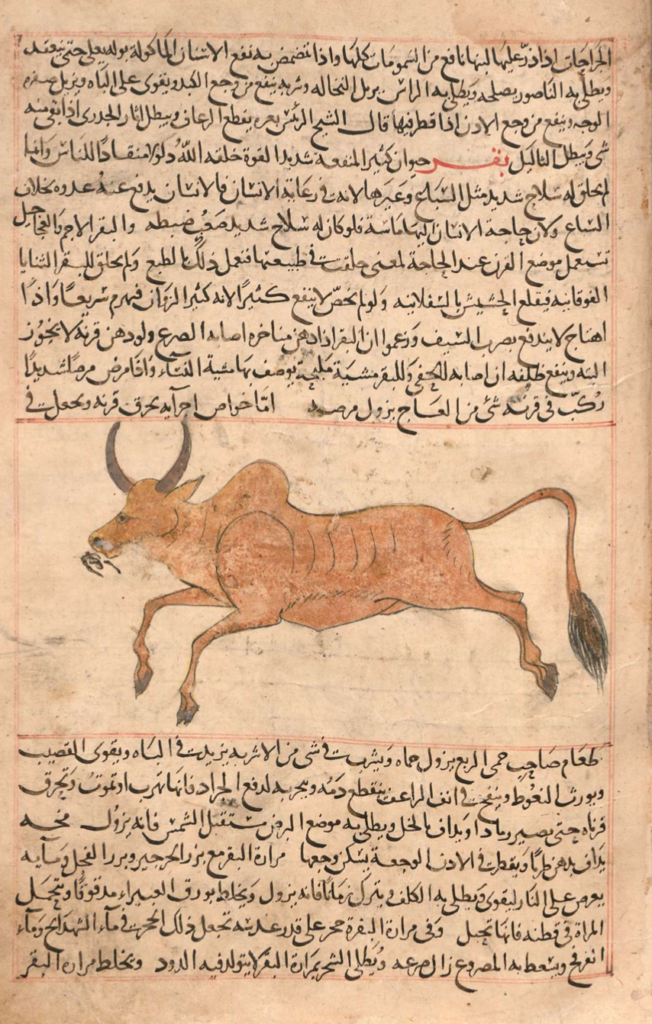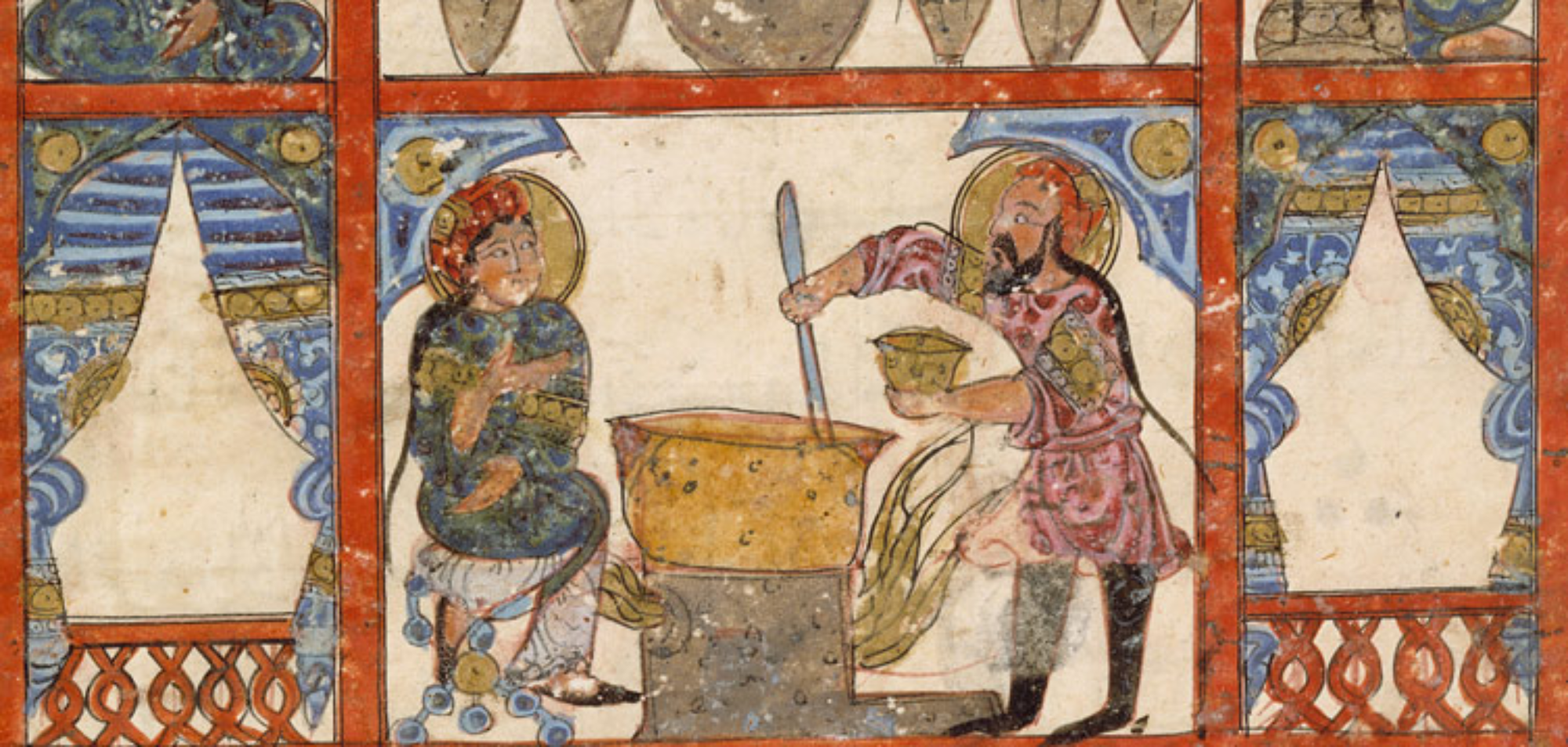Beef was not used very often in medieval Arab cuisine, which preferred lamb and chicken. Beef was, however, the usual meat in the famous vinegar stew, ‘sikbaj’ (سكباج), while in Abbasid cuisine it was also used in a number of cold dishes (بوارد, bawarid). It does not appear at all in a 13th-century Baghdadi recipe collection, and is required in only two dishes in a 15th-century Egyptian cookery book.
Medically, beef was considered dense and to generate putrid blood. It is only good for those who engage in physical work, or for young people. Cheese made from cow’s milk was considered to be the heaviest of all cheeses, whereas rice cooked in cow’s milk was thought to be indigestible.
Beef did not find much favour either in religion, and a famous hadith, for instance, states that the milk and butter of cows are curative, but their meat causes disease.
The above is somewhat at odds with the praising comments by the cosmographer al-Qazwini (13thc.), who stated that the cow is not only very useful, but also one of the strongest animals on earth. Allah did not create it with weapons like wild animals because it is under the protection of human beings who drive away the cows’ enemies. Another reason is that humans have a great need for the animal and if it were equipped with weapons, it might overpower them.

